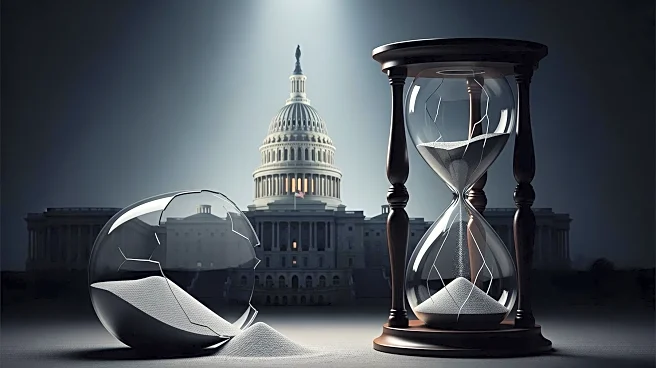What's Happening?
The U.S. government shutdown is set to become the longest federal funding lapse in history, surpassing the previous record set in early 2019. The Senate failed to pass a Republican-backed stopgap measure
for the 14th time, with no further votes scheduled. The dispute centers on enhanced tax credits for insurance premiums under the Affordable Care Act, which are set to expire, potentially increasing health care costs for millions. Democrats refuse to support a resolution that does not address these subsidies, while Republicans reject negotiations during the shutdown.
Why It's Important?
The prolonged government shutdown has significant implications for federal operations and public services. It affects government employees, contractors, and citizens relying on federal programs. The dispute over health care subsidies highlights ongoing political divisions, impacting legislative processes and public policy. The shutdown's duration could influence public perception of government effectiveness and the political landscape, particularly with upcoming elections.
What's Next?
Senate Republicans express optimism that the shutdown could end soon, suggesting potential compromises after breaking the shutdown length record. However, Democrats remain skeptical about reaching a resolution. The ongoing negotiations may lead to changes in health care policy and influence future legislative strategies. Stakeholders, including political leaders and civil society groups, will likely continue to advocate for their positions, affecting the shutdown's resolution.
Beyond the Headlines
The shutdown underscores deeper political and ideological divides within the U.S. government, potentially affecting long-term governance and policy-making. It raises questions about the effectiveness of bipartisan negotiations and the impact of political stalemates on public trust in government institutions.








